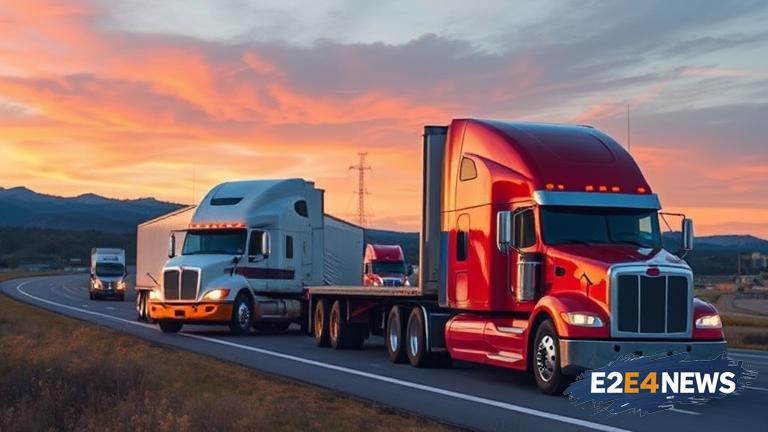The trucking industry has been facing numerous challenges in recent years, including rising fuel costs, increasing regulatory burdens, and a shortage of qualified drivers. In an effort to provide relief to the industry, the government repealed certain truck emissions regulations, aiming to reduce costs and improve efficiency. However, the repeal has not had the desired effect, and the industry continues to struggle. One of the main reasons for this is that the repealed regulations were not the primary cause of the industry’s problems. Instead, the root causes of the challenges facing the trucking industry are more complex and multifaceted. For example, the industry is still grappling with the aftermath of the COVID-19 pandemic, which disrupted supply chains and led to a surge in demand for transportation services. Additionally, the ongoing shortage of qualified drivers remains a major concern, as it limits the industry’s ability to meet growing demand. Furthermore, the rise of e-commerce has created new challenges for the industry, as companies struggle to adapt to changing consumer behaviors and expectations. The repeal of emissions regulations has also been criticized for its potential environmental impacts, as it may lead to increased greenhouse gas emissions and air pollution. Despite these challenges, the trucking industry remains a vital component of the US economy, accounting for a significant portion of the country’s freight transportation. In order to address the industry’s challenges, policymakers and industry leaders must work together to develop effective solutions. This may involve investing in new technologies, such as alternative fuels and autonomous vehicles, as well as implementing policies to support the development of a more sustainable and efficient transportation system. The industry must also prioritize the recruitment and retention of qualified drivers, through initiatives such as training programs and improved working conditions. Moreover, companies must adapt to changing consumer behaviors and expectations, by investing in digital technologies and optimizing their logistics and supply chain operations. The repeal of emissions regulations has highlighted the need for a more comprehensive and nuanced approach to addressing the challenges facing the trucking industry. Rather than simply repealing regulations, policymakers must work to develop a more sustainable and efficient transportation system, one that balances economic and environmental concerns. This will require a coordinated effort from industry leaders, policymakers, and other stakeholders, as well as a willingness to invest in new technologies and innovative solutions. The future of the trucking industry depends on its ability to adapt to changing circumstances and to develop effective solutions to the challenges it faces. By working together and prioritizing sustainability and efficiency, the industry can overcome its current challenges and emerge stronger and more resilient than ever. The trucking industry is a critical component of the US economy, and its success is essential to the country’s continued growth and prosperity. As such, it is imperative that policymakers and industry leaders work together to develop effective solutions to the challenges facing the industry. The repeal of emissions regulations is just one example of the complex and often conflicting priorities that must be balanced in order to support the industry’s success. Ultimately, the key to the trucking industry’s success will be its ability to adapt to changing circumstances and to develop innovative solutions to the challenges it faces. By prioritizing sustainability, efficiency, and innovation, the industry can overcome its current challenges and emerge stronger and more resilient than ever. The trucking industry’s future is uncertain, but with the right approach, it can continue to thrive and support the US economy. The industry’s challenges are complex and multifaceted, but by working together and prioritizing effective solutions, policymakers and industry leaders can help to ensure its continued success. The repeal of emissions regulations has highlighted the need for a more comprehensive approach to addressing the industry’s challenges, one that balances economic and environmental concerns. As the industry moves forward, it is essential that policymakers and industry leaders prioritize sustainability, efficiency, and innovation, in order to support the development of a more resilient and successful trucking industry.
